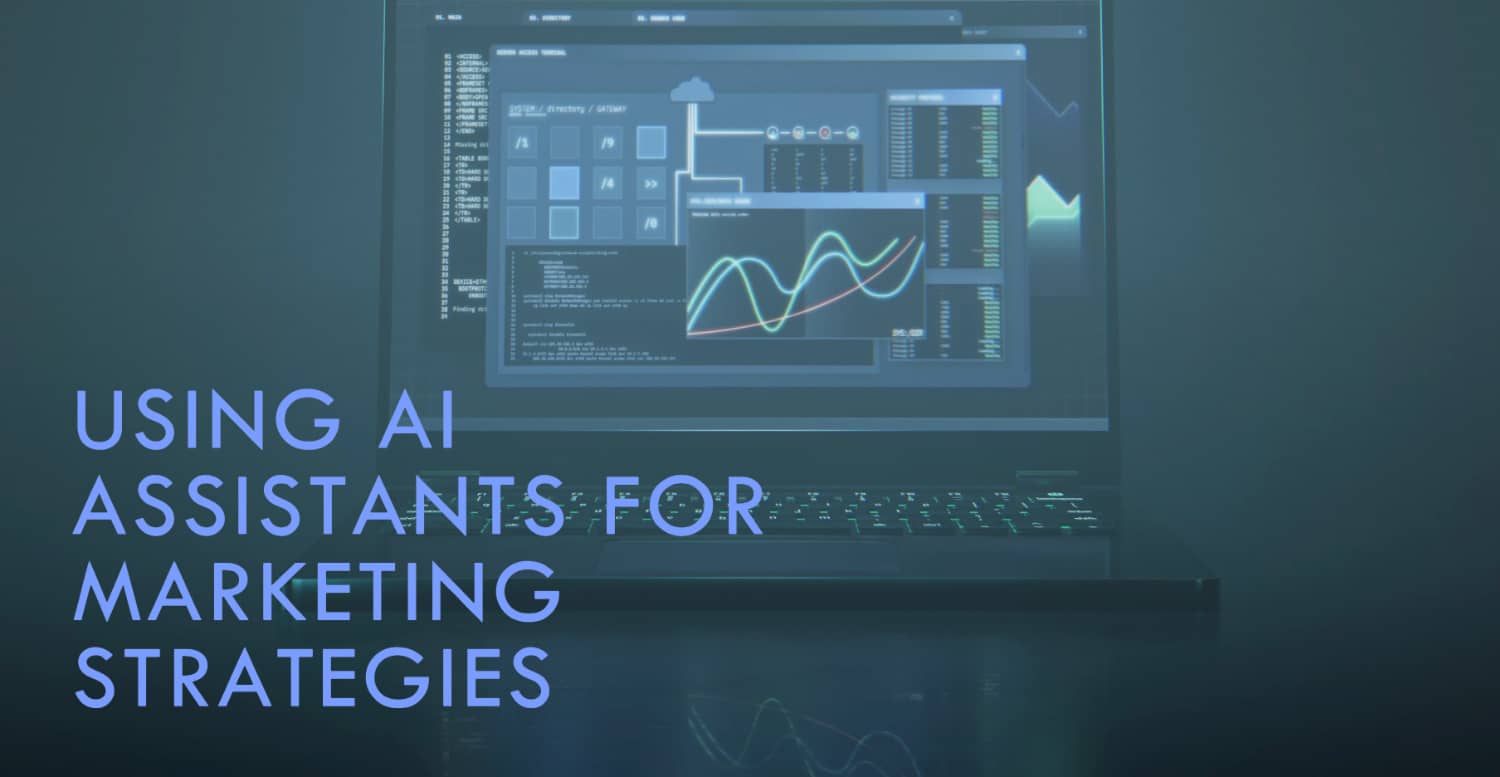Artificial intelligence (AI) is transforming how marketers work. As AI assistants become more advanced, they are taking on important roles in marketing processes. From managing calendars to creating content, AI tools are enhancing productivity and efficiency.
How Can AI Assistants Help Marketers?
AI assistants support marketers in various ways:
Streamlining Planning and Management
Managing calendars and inboxes: Tools like Superhuman and Clockwise optimize scheduling so marketers can focus on core tasks.
Automating tedious tasks: AI helps with repetitive jobs like data entry so marketers can be more strategic.
Enhancing Customer Experiences
Personalizing customer support: Chatbots provide 24/7 assistance and human-like interactions.
Segmenting audiences: AI analyzes data to divide audiences into groups for targeted messaging.
Improving Content Production
Creating content: Assistants like Jasper and ContentShake generate ideas and draft copy.
Optimizing assets: Tools like SEO Writing Assistant improve content for better visibility.
Generating Actionable Insights
Predictive analytics: AI identifies trends to inform planning and adaptation of campaigns.
Understanding customers: Analysis of conversations builds more detailed customer profiles over time.
As AI technology advances, assistants are getting better at collaborating with humans on both repetitive and creative tasks. This makes them extremely valuable for marketers seeking to achieve more with less time and effort.

AI Assistants for Marketers
AI assistants are software tools that leverage artificial intelligence to help marketers streamline workflows and enhance productivity. As AI technology continues to advance, these tools are becoming increasingly powerful and beneficial for marketing strategies.
What are AI Assistants?
AI assistants are a form of artificial intelligence that marketers can use to:
Automate repetitive tasks: Tedious jobs like data entry, reporting, and asset creation can be handled by AI tools. This allows marketers to focus their efforts on high-value activities.
Provide personalized support: With natural language processing (NLP), AI assistants can understand context and provide tailored recommendations or responses, much like a human assistant would.
Generate actionable insights: Sophisticated machine learning algorithms enable AI assistants to uncover trends and patterns within large volumes of data. These insights inform better decision making.
Categories of AI Assistants
There are a few broad categories of AI assistants available:
Virtual assistants: Tools like Google Assistant and Alexa handle voice commands and can complete basic tasks through conversation.
Chatbots: These specialize in text-based interactions. Chatbots provide 24/7 real-time support and assistance.
Predictive analytics: Software suites like Alteryx and Domo analyze data to uncover trends and future scenarios to enhance planning.
Marketing focused: Assistants like Jasper and Chatspot optimize a range of marketing specific functions from content creation to data analysis.
As AI advances, assistants are getting better at collaborating seamlessly with marketers on both high-level strategy and routine execution to drive better marketing outcomes.

Revolutionizing Marketing Processes with AI
AI assistants are transforming how marketers execute campaigns and engage with customers. By automating tedious tasks and providing data-driven recommendations, AI allows marketers to optimize a wide range of processes.
Streamlining Planning and Management
Juggling the many moving parts of campaigns can be challenging without the right systems in place. AI tools help consolidate workflows so marketers can work more efficiently:
Calendar management - Assistants like Clockwise optimize schedules while Motion organizes tasks and deadlines automatically.
Email organization - Tools like Superhuman prioritize inboxes, allowing faster responses to high-priority emails.
Performance reporting - AI can quickly pull insights from campaign data into digestible reports to inform strategy.
Budget optimization - Assistants analyze spend and outcomes to shift budgets to better performing platforms and campaigns.
Enhancing Customer Interactions
AI enables more personalized and contextually relevant conversations:
Chatbots serve as the first line of communication, resolving common customer queries quickly before handing off to a human for more complex issues.
Virtual assistants like Alexa allow for convenient voice-based interactions.
Predictive analytics uncover visitor preferences so content offers and messaging can be tailored for each customer.
This results in stronger customer connections and improved conversion rates.
Facilitating Faster Content Creation
Developing quality content requires significant time and effort. AI writing tools expedite content generation:
Assistants like Jasper and ContentShake help with ideation and draft synthetically generated copy.
Tools like SEO Writing Assistant optimize articles for better visibility across search and social platforms.
This allows marketers to develop more content in less time without compromising quality.
Integrating AI facilitates efficiency, engagement, and innovation. It empowers marketers to achieve much more.
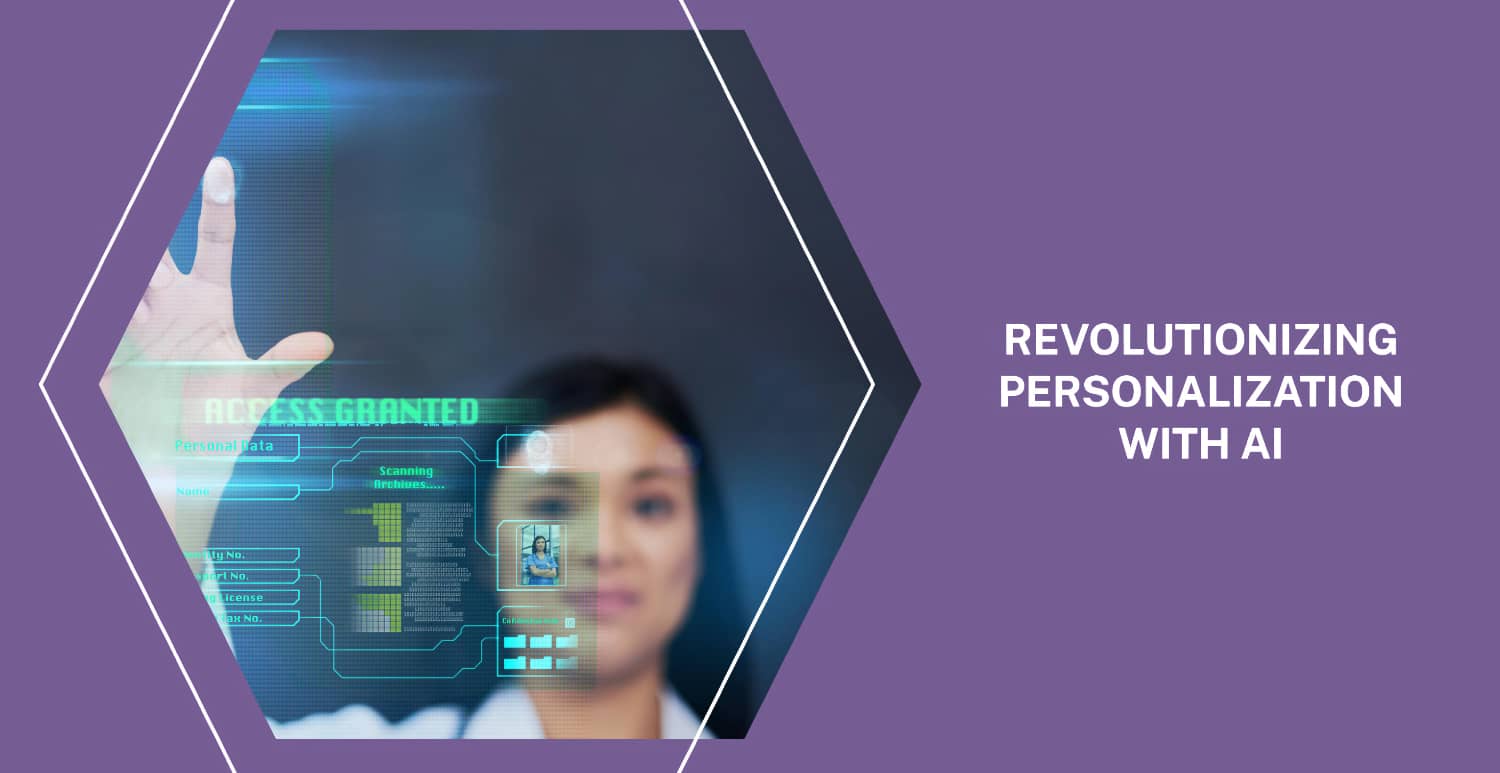
Personalizing Experiences with AI
One of the most powerful applications of AI in marketing is enabling greater personalization. By understanding each customer as an individual, AI assistants help brands provide tailored messaging and experiences.
Gathering Insights on Customer Preferences
The first step in personalization is gathering behavioral data and identifying trends. AI tools automate the analysis process:
Natural language processing scans conversations to uncover common themes and interests.
Machine learning detects meaningful patterns in purchase history and browsing habits.
Sophisticated algorithms group audiences into granular segments based on multiple attributes.
These insights inform the development of targeted content and promotions.
Delivering Relevant, Timely Messages
Armed with rich customer data, AI assistants can ensure each interaction is contextually relevant.
Chatbots adjust their responses based on visitor attributes and behaviors, providing a personalized exchange.
Email platforms equipped with AI, like Mailchimp, determine optimal send-times and recommend relevant products.
Social media tools can identify trending topics among target segments and suggest appropriate messaging.
This real-time adjustment powers meaningful customer connections.
Crafting Tailored Content
Producing content for diverse audiences used to be hugely time consuming. With AI, marketers can easily develop specialized assets.
Writing assistants like ContentShake and Jasper help craft blog posts targeted to specific personas.
Design assistants like Canva build customized graphics and presentations for individual teams or regional offices.
Automated personalization allows brands to provide exceptional experiences at scale.
When armed with customer insights, AI becomes an invaluable tool in marketingââ¬â¢s personalization arsenal allowing for substantial gains in efficiency and relevancy.
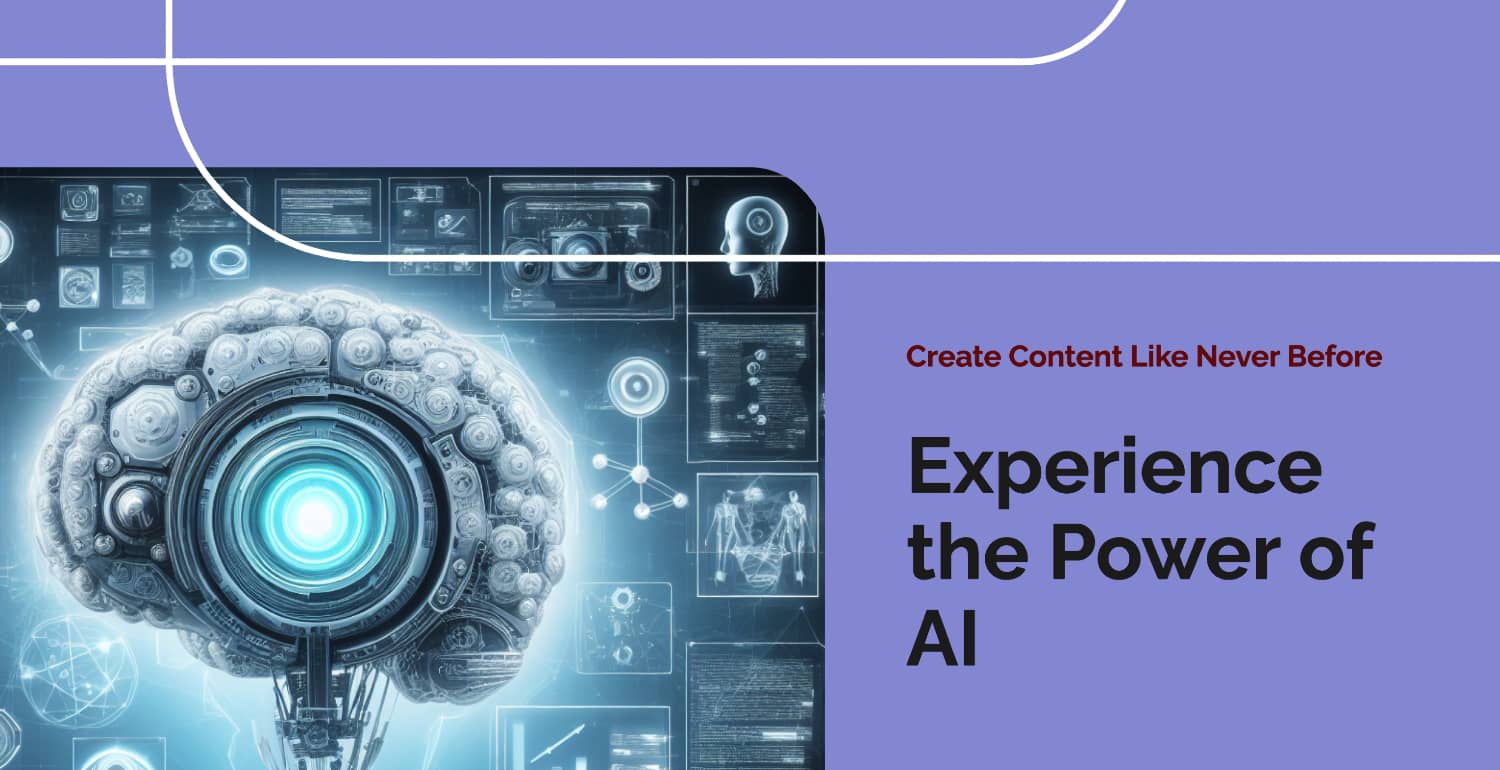
AI-Powered Content Creation
One of the biggest stressors for marketers is the constant need to produce engaging content. From blogs to social posts, developing quality assets is hugely time intensive. AI writing assistants are revolutionizing how marketers create content.
Automating Idea Generation
Ideation is often the most challenging hurdle when creating content. AI tools help streamline topic research and brainstorming:
Tools like Buzzsumo uncover the most engaging article topics through analysis of social shares and backlinks.
Assistants like ChatGPT and Jasper can rapidly develop lists of relevant titles for different formats and audiences when provided with a core theme.
This accelerated research empowers marketers to swiftly discover high-potential ideas worth pursuing.
Drafting Original Copy with AI
Whether it is long-form blog articles or snappy social posts, drafting the core copy requires significant effort. AI writing assistants automate the initial content generation:
Tools like Copy.ai produce synthetic text that only needs minor editing and brand messaging injected.
Assistants identify optimal keywords to integrate based on search volume and topic relevance.
Formatting for various platforms happens seamlessly, saving manual effort.
This enables swift drafting at scale across numerous content assets.
Optimizing for Visibility
Writing captivating copy is only the first step. Ensuring content ranks well across search engines and social sites is critical for driving engagement.
AI optimization tools refine copy for maximum visibility:
Tools like SEO Writing Assistant analyze readability, length and keyword integration to boost organic traffic.
Image recognition improves alt-text and filenames to enhance visual content exposure.
Sentiment analysis uncovers emotional gaps to inject a balance ofPositive and negative language.
AI provides the necessary analytical horsepower and optimization to make quality content stand out.
Leveraging AI for content creation saves time while still allowing the flexibility to adapt assets to brand voice and style needs. This empowers faster ideation and production cycles.
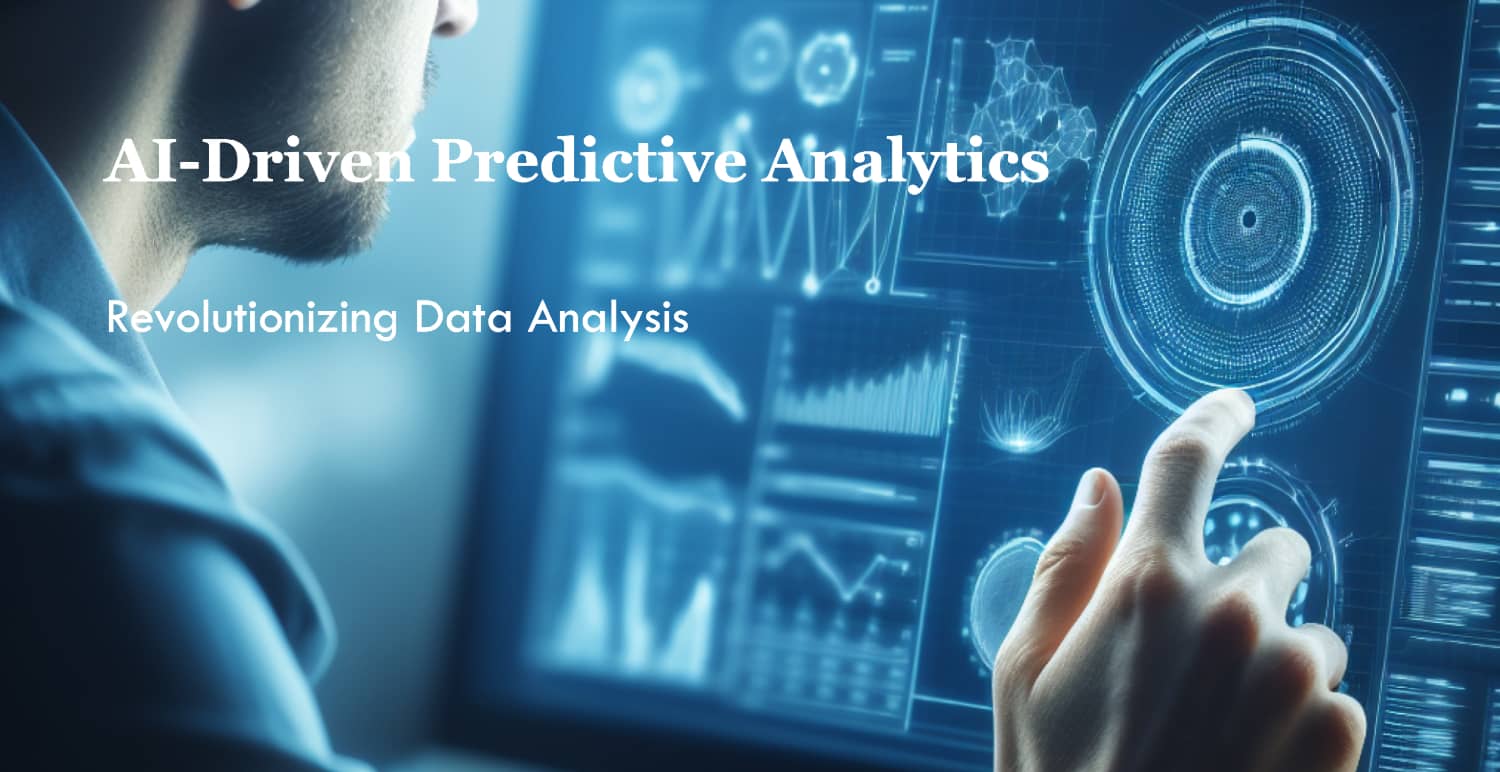
AI-Driven Predictive Analytics
For marketers to stay ahead of trends and adaptable to changes, they need to anticipate future scenarios. This is where predictive analytics enabled by AI becomes invaluable.
Uncovering Patterns in Data
AI tools analyze volumes of historical data to identify trends and patterns over time. By projecting these forward, they can model potential futures.
Natural language processing detects shifts in sentiment and engagement across social conversations.
Time series analysis uncovers cycles in website traffic and sales.
Clustering algorithms group audiences and products to reveal unlikely correlations.
Combining these techniques provides a rich perspective on emerging behaviors.
Anticipating Future Outcomes
Equipped with deep insights from advanced analytics, AI systems can now forecast trends with increasing accuracy.
Several assistive technologies help model future scenarios:
Chatbots like Statsbot project how metrics like lead volume may fluctuate based on past campaigns.
Market intelligence suites like CB Insights can predict churn likelihood by analyzing adoption lifecycles.
Virtual assistants like Crystal anticipate customer needs and preferences to get ahead of their next desired solution.
These projections enable proactive planning and decision making.
Adapting Marketing Strategies
Predictive analytics allows marketers to optimize spend allocation, inventory, and production well in advance to meet expected future demand.
Chatbots provide guidance on budget distribution across platforms and campaigns likely to have the highest ROI.
Virtual assistants like Analytics Canvas rapidly adjust manufacturing quantities as sales predictions change.
Email tools time the deployment of fresh lead magnets right before upticks in related search demand.
With AI systems continually monitoring data and notifying teams of impactful developments, organizations become truly agile and resilient.
So while prediction has always been used in marketing, AI takes it to an entirely new level of sophistication and speed.

Real-World Success Stories
While the marketing applications of AI sound promising in theory, what truly matters is real-world performance. Many top brands have already incorporated assistants and are seeing remarkable results.
Boosting Campaign Performance
Leading footwear brand, Adidas turned to AI to optimize their digital presence. By leveraging tools like Albert the company saw substantial improvements:
Email open rates increased by 40% through optimized send-times
Click-through rates on targeted banners doubled thanks to AI-based dynamic creative optimization
The next best action models powered a 3X lift in conversion rates across the site
Through AI-driven testing and personalization, Adidas accelerated growth rapidly.
Enhancing the Customer Experience
Cosmetics retailer, Sephora unveiled a customized chatbot on their mobile app to provide tailored product recommendations for users. The AI assistant helped the brand:
Achieve 3X more monthly active app users - thanks to 24/7 support
Increased repeat purchase rate by 5% with personalized re-order reminders
Reduced call volume by 40% as the bot managed common inquiries
These outcomes showcase how AI-assisted personalization strengthens loyalty.
Improving Content Production
Leading B2B software provider HubSpot leveraged tools like Blog Post Generator and Blog Topic Generator to rapidly grow their content production.
Blog posts published increased by 2x over 6 months
Total organic traffic rose 85% year-over-year
Content efficiency metrics like cost-per-lead dropped 35% with greater volumes
This example highlights how AI optimizes ideation and creation for ambitious content goals.
The success stories speak for themselves - incorporating AI meaningfully improves marketing performance across key objectives.
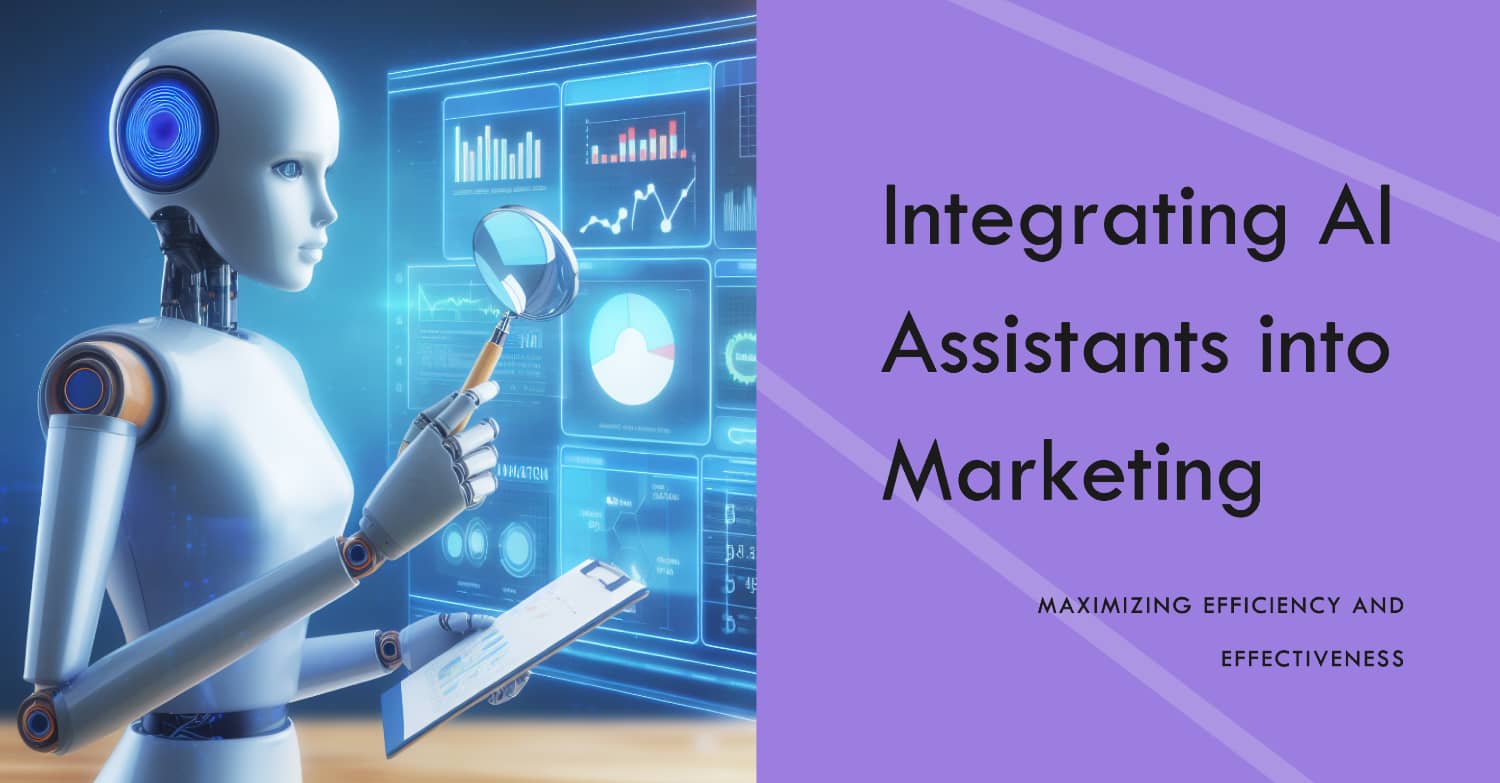
Incorporating AI Assistants into Marketing Strategies
With an abundance of AI-powered tools now available, marketers need a strategic approach to adoption. By integrating assistants into workflows deliberately, brands can maximize value.
Identifying the Right AI for Desired Outcomes
Marketers should start by listing their most pressing pain points and challenges. This clarity on objectives and needs will inform which AI tools to pursue.
Some key questions to ask:
Are we struggling with lead generation and content creation? -> Try assistants like Jasper or Conversion.ai
Is our customer data fragmented and insights limited? -> Explore customer intelligence platforms like Affinity
Are our campaigns not driving incremental growth? -> Incorporate optimization suites like Albert
Matching business outcomes to relevant AI assistants accelerates value realization.
Defining Processes for Integration
Once brands select the right assistants, they need to map detailed integration plans including:
User permissions: Which marketers will access the AI tool for specific use cases?
System connectivity: How will data flow between the assistant, core databases, and other platforms?
Ongoing training: How will the AI adapt to new guidelines and business scenarios over time?
Thorough integration blueprints enable smooth adoption across the organization.
Monitoring Performance Over Time
After debuting an AI assistant, it's critical to continually track its effectiveness through metrics like:
Output quality: Does performance meet benchmarks for accuracy, relevancy, and completeness?
Impact on objectives: Are KPIs like campaign efficiency, customer satisfaction, and lead growth improving?
User feedback: Are marketing team members seeing process enhancement firsthand?
Careful monitoring ensures algorithms adapt to evolving needs and benchmarks. With regular evaluation, assistants evolve into true partners powering marketing success over the long term.

The Future of AI in Marketing
The marketing applications of AI explored in this article merely scratch the surface of what's possible. As the technology progresses, it promises to unlock unprecedented potential.
Ongoing Innovation in the AI Landscape
From better data processing capabilities to more sophisticated algorithms, AI systems are continuously evolving. Some key areas to monitor include:
Enhanced conversational AI - Tools like Anthropic's Claude already display eerily human-like interactions. Such assistants could one day replace chatbots.
Quantum computing - New computational models may exponentially increase the speed of data processing and analytics. This unlocks more complex applications.
Predictive analytics - Existing forecasting capabilities will expand, allowing marketers to simulate various scenarios to determine optimal strategies.
It's critical marketers actively track emerging innovations in the space. Being early adopters of cutting-edge solutions can provide substantial competitive advantage.
Reimagining Marketing Practices
Looking to the future, AI may fundamentally reshape the marketing function. Assistants could guide processes end-to-end, with marketers playing an oversight role:
AI Steps
Inform strategy by identifying growth opportunities backed by data
Craft entire campaigns activated across platforms
Continuously optimize spend and asset mix based on performance
Build 1:1 engagement with every customer via hyper-personalization
Marketer Steps
Provide high-level goals, brand guidelines and target audience needs
Review and refine AI-generated strategies and content where required
Allocate resources and budgets across proposed programs
Rather than execution, humans focus more exclusively on vision, creativity and emotion - those intrinsically human capabilities that AI cannot match. This presents an exciting opportunity to elevate the impact of marketing once more.
The possibilities with AI are truly infinite. With the right adoption strategy, marketing is primed for a revolution.
AI Assistants Are the Future of Marketing
AI-powered digital assistants promise to transform the marketing landscape. As the technology continues advancing, these tools are getting remarkably better at streamlining workflows, unlocking insights, and enhancing customer experiences.
Specifically, assistants accelerate content production, facilitate predictive planning, deepen personalization, and optimize campaign performance. Top brands that have embraced these solutions already report significant efficiency gains, sales lifts, and customer growth.
But AI integration must be deliberate. Teams should start by identifying the pressing challenges innovation can address. With use cases defined, they can map detailed implementation plans ensuring smooth adoption. As AI permeates workflows over the long-term, marketers stand to realize exponential gains in productivity and business impact.
This new era of augmented marketing powered by AI ushers in bolder ambitions, increased agility to market shifts, and deeper customer connections. Much like past industrial revolutions, the age of artificial intelligence will profoundly reshape marketing practices. Teams that fail to incorporate these solutions risk getting left behind. Instead, with strategic adoption, there is an unprecedented opportunity to evolve the function and amplify marketing's value to the organization.
